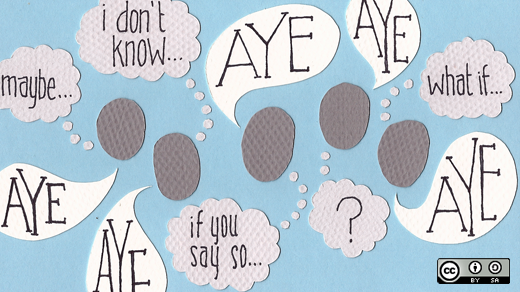The Internet's foundational documents are called "requests for comments" or "RFCs." Published by the Internet Engineering Task Force (IETF), the organization whose stated goal is "to make the Internet work better," RFCs define and explain the operational standards by which our worldwide network of networks functions. In other words, they specify the rules everyone should follow when building and implementing new Internet technologies. Engineers working on the Internet discuss potential RFCs, debate their merits, then post their decisions online for anyone to read.
People have been publishing RFCs for decades (Steve Crocker wrote the first one in 1969). By maintaining a common set of rules (technical standards the group typically calls "protocols"), the IETF ensures that the Internet continues to work the same way for everyone—and that everyone can participate in its evolution. Even though the process for ratifying RFCs has changed throughout the past four decades, the name of these documents never has. Since the early days of ARPANET, people have been making requests for comments.
I've always liked this convention. Calling the Internet's founding documents "requests for comments" reinforces the idea that the Internet—this thing that facilitates so many participatory projects worldwide—is itself an ongoing collaborative effort, something open to continual re-evaluation and revision. As the IETF notes, the name "expresses something important: the Internet is a constantly changing technical system, and any document that we write today may need to be updated tomorrow." The group doesn't dictate "standards." It doesn't mandate "policies." It just makes "requests for comments." What could function as a definitive declaration instead becomes an invitation. And so the conversations continue.
I often think about RFCs when I'm going about my work in an open organization. Every day, I find myself closing emails and conversations with phrases like "let me know what you think" and "feedback welcome." I often tell people I "want to know what you think about this," or that I "could use your opinion on something." In fact, because so much work in open organizations is collaborative, I find myself doing this more often than not—so often indeed that I've recently begun to wonder if I'm being redundant.
Like each IETF technical specification, every communication in an open organization should be an invitation to refine, re-work, and ultimately improve the project at hand. No one needs to include the phrase "feedback welcome" on an official RFC; the nature of the document itself simply implies the solicitation. Regardless of whether I explicitly ask someone for input, I must certainly expect to receive it—because in an open organization, every gesture should be inclusive by default.
It's not always an appealing prospect. As Jim Whitehurst writes in The Open Organization, working inclusively can slow decision making, as incorporating multiple perspectives requires precious time and energy. But being inclusive can actually speed up implementation, making change management easier. When people aren't surprised by a decision you've made (after all, they helped you arrive at that decision), they more willingly help you carry it out.
So I plan to save myself a few keystrokes, recognizing instead that in open organizations everything is a request for comments. As always, I welcome your feedback. (Ed: Redundant)
Follow the conversation on Twitter #theopenorg






Comments are closed.